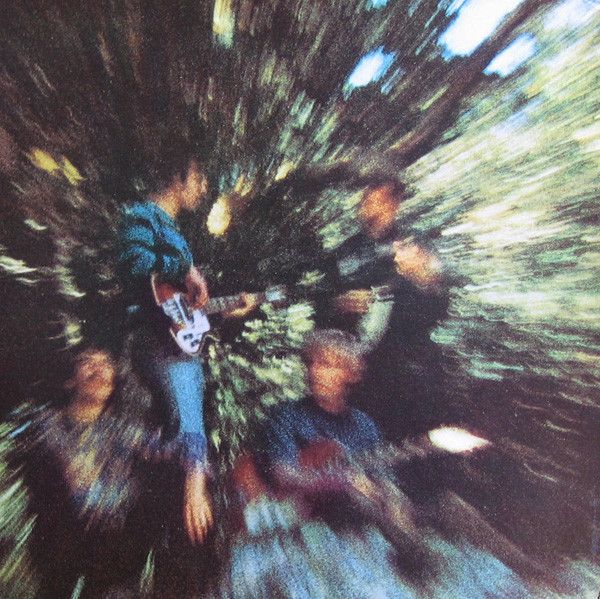American rock music was in an interesting place in the late 60s, with the psychedelic sounds of the West Coast jam bands, a burgeoning singer-songwriter movement, arty outsider rock courtesy of the likes of The Velvet Underground and The Silver Apples, as well as a roots rock movement that had been spearheaded by The Band. One band who didn’t seem to fit neatly into any of these movements were California’s Creedence Clearwater Revival, a band who straddled the singles and album charts like no other act over a ridiculously prolific two year stretch, during which they released no less than 14 singles across five albums.
It wasn’t obvious from the beginning that CCR were going to be go on such an intense run of creativity, as their 1968 self titled debut was, at best, serviceable and boasted the hit “Susie Q”, but bands of the era regularly enjoyed a one off hit single with an early release which then dragged its parent album into the charts. CCR’s follow up album, Bayou Country, was released in the first week of 1969 and gave the first indications that CCR may have something truly unique about them and saw the real start of bandleader John Fogerty’s sustained hot streak.
Bayou Country starts with an almost sinister rising hum that opens “Born on the Bayou”, and over the course of five minutes CCR establish themselves as one of the leading lights of late 60s American music, by way of swampy rock and roll vibes that countless Southern Rock acts would emulate over the next five years – no small achievement given that CCR were from California. Throughout Bayou Country, CCR demonstrate their abilities as a water-tight musical unit by way of groovy slow paced rock and roll by way of “Graveyard Train”, the bluesy “Penthouse Pauper”, and a contrasting breakneck cover of rock and roll standard “Good Golly Miss Molly”.
Creedence Clearwater Revival’s legend is sealed by way of Bayou Country’s two closing tracks. “Proud Mary” was John Fogerty’s first top class contribution to the Great American Songbook, and is still the perfect synthesis of the Creedence Clearwater Revival sound, from John’s timeless rock and roll vocals, to his brother Tom’s relentless rhythm guitar work, and the perfectly interlocked rhythm section of Doug Clifford and Stu Cook. “Proud Mary” is a rock standard which continues to be covered by other acts regularly, and the original still stands as one of the greatest singles ever released. Bayou Country closes with “Keep on Chooglin'”, where the band hit a relentless groove and follow it unwaveringly, for well over seven and a half minutes. In lesser hands it might have been a track that dragged, but somehow CCR keep it vital and vibrant, minting their first killer album closer, and ensuring that Bayou Country is untroubled by a weak spot.
The only misgiving you might have about Bayou Country, is assuming that an album so well balanced would overshadow the rest of their output, but the next 24 months would see another four albums released that were at least the equal, if not superior to Bayou Country. If you’re not sure where to start with CCR’s album output, I would recommend starting with Bayou Country and going chronological from there, circling back to the debut afterwards and giving their final album, Mardi Gras, a miss altogether.
On its own merits, Bayou Country is as vital as any rock album released in the late 60s.














No Comment